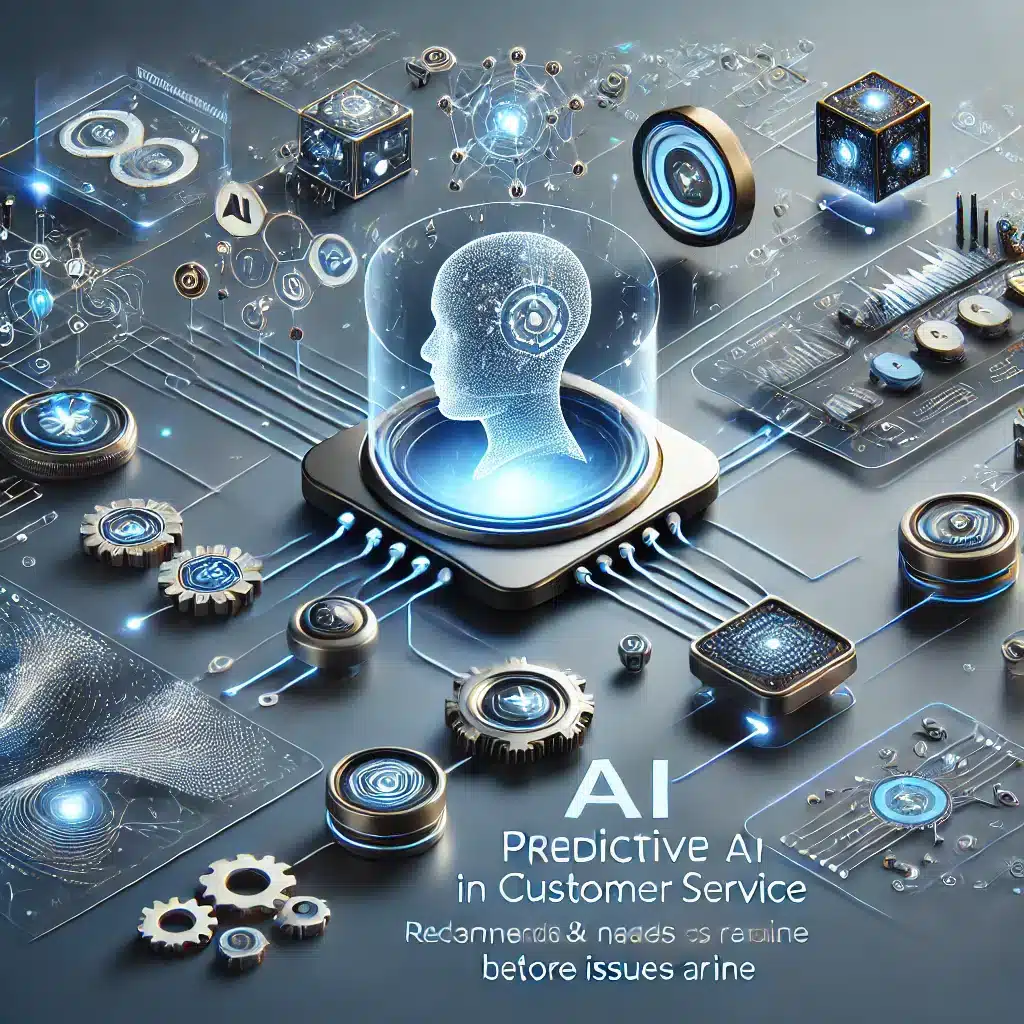In today’s fast-paced technological landscape, artificial intelligence (AI) is revolutionizing the way businesses manage after-sales service. By leveraging AI, companies aim to improve customer experiences, increase satisfaction, and secure long-term loyalty. This article explores how AI can be used in after-sales service to achieve these goals, the future implications of AI in customer support, and the challenges businesses must address.
How Can AI Improve After-Sales Customer Service?
What are the Key Benefits of AI in After-Sales Service?
AI offers significant benefits in after-sales service, transforming the way businesses interact with customers. For example, AI tools can automate routine inquiries, freeing up service agents to handle more complex tasks. By providing instant responses to common customer questions, AI reduces wait times, ultimately boosting customer satisfaction. Additionally, AI streamlines the process of tracking and managing customer issues, ensuring efficient documentation and resolution.
These benefits allow businesses to serve more customers while enhancing the overall service quality, paving the way for long-term customer loyalty.
How Does AI Enhance Customer Satisfaction?
Customer satisfaction plays a crucial role in business success, and AI helps achieve it by delivering swift and accurate responses to customer queries. Generative AI can offer personalized recommendations and solutions based on customer data, ensuring interactions are tailored to individual needs. Additionally, AI can predict and address potential issues before they become major problems, enabling businesses to provide proactive service. This commitment to addressing customer needs not only satisfies customers but also builds a sense of loyalty.
What AI Tools Can Be Used for Better Customer Interaction?
AI tools such as AI assistants, chatbots, and virtual agents can significantly enhance customer interactions.
- AI Assistants: Handle a large volume of inquiries, providing consistent, accurate information 24/7.
- Chatbots and Virtual Agents: Engage customers in real-time, addressing common questions and guiding them through troubleshooting steps.
By offering immediate assistance and allowing human agents to focus on more personalized tasks, these tools improve the overall customer service experience.

How Do Businesses Use AI to Enhance Customer Service Quality?
How Can AI Assist in Customer Service Quality Assurance?
AI can significantly improve customer service quality assurance by analyzing interactions between customers and service agents. AI tools can evaluate these interactions for adherence to quality standards, identifying areas where improvements are needed. By providing real-time feedback and performance analytics, AI helps service teams continuously refine their approach, ensuring that high standards of service are maintained. Moreover, AI-driven insights can uncover patterns and trends in customer feedback, guiding businesses in making informed decisions to enhance service quality.
What AI Technologies Add Value to Customer Service Teams?
AI technologies such as Natural Language Processing (NLP), Machine Learning, and AI-driven Analytics significantly enhance customer service operations.
- NLP: Allows AI systems to understand and respond to customer inquiries conversationally.
- Machine Learning: Analyzes past interactions to predict customer needs and preemptively resolve issues.
- AI Analytics: Provides deep insights into customer behavior, enabling businesses to customize their offerings more effectively.
These technologies help service teams operate more efficiently, improving both the customer experience and service quality.
How Does Generative AI Improve Support Operations?
Generative AI plays a pivotal role in improving support operations by automating content creation and problem-solving processes. For instance, generative AI can draft responses to customer emails or chat inquiries, ensuring consistency and accuracy in communications. It can also generate knowledge base articles and FAQ content, keeping information up-to-date and easily accessible for both customers and service agents. By leveraging generative AI, support teams can reduce response times, enhance efficiency, and maintain high levels of customer service quality.
What is the Future of AI in Customer Support?
How Will AI Shape the Future of Customer Service?
The future of AI in customer service is poised to bring even more advanced capabilities, transforming how businesses engage with their customers. AI will likely become more integrated into customer service operations, with AI assistants and chatbots handling an increasing share of interactions. These AI systems will become more sophisticated, capable of understanding nuanced customer sentiments and providing more personalized solutions. By automating routine tasks and enhancing customer interactions, AI will enable service teams to deliver exceptional service consistently.
What Innovations are Expected in AI for Customer Support?
Future AI innovations in customer support include:
- Enhanced Predictive Analytics: Anticipating customer needs more accurately.
- Sentiment Analysis: Gaining deeper insights into customer emotions.
- Machine Learning Advancements: AI systems continuously improving based on interactions.
These innovations will increase efficiency, providing more personalized, proactive support.
How Will Future AI Tools Improve Service Team Efficiency?
Future AI tools are expected to significantly enhance service team efficiency by automating repetitive tasks and providing actionable insights. Advanced AI systems will support service agents with real-time data and recommendations, allowing them to handle complex customer inquiries more effectively. AI-powered virtual assistants will manage routine interactions, freeing up human agents to focus on high-value tasks. Additionally, AI-driven analytics will help service teams identify workflow bottlenecks and optimize processes, ensuring that resources are used more efficiently.
What Challenges Exist When Using AI in Customer Service?
What are the Common Issues in Implementing AI Solutions?
While AI offers numerous benefits, implementing AI solutions in customer service comes with challenges. One common issue is the integration of AI systems with existing customer service platforms. Ensuring seamless interoperability between AI tools and traditional systems can be complex and time-consuming. Another challenge is the quality of data used to train AI models; inaccurate or biased data can lead to suboptimal performance. Additionally, there is the challenge of maintaining a balance between automated and human interactions, as overly relying on AI can potentially alienate customers.
How Can Service Teams Overcome AI Integration Challenges?
To overcome AI integration challenges, service teams must adopt a strategic approach. This includes conducting thorough assessments to identify compatibility issues and ensure that AI tools can seamlessly integrate with existing systems. Training data must be carefully curated to ensure accuracy and relevance, and continuous monitoring is essential to maintain the performance of AI models. Moreover, businesses should adopt a hybrid approach where AI supports, rather than replaces, human agents, ensuring that customers still receive the personal touch when needed.
What Measures Ensure Customer Data Privacy?
Ensuring customer data privacy is paramount when implementing AI in customer service. Businesses must comply with data protection regulations such as GDPR and CCPA to safeguard customer information. This involves implementing robust security measures, such as encryption and access controls, to prevent unauthorized access to customer data. Transparency is also crucial; customers should be informed about how their data will be used and have the option to opt-out if they wish. By prioritizing data privacy, businesses can build trust and maintain strong customer relationships.
How Can AI be Used to Analyze Customer Feedback?
What Role Does AI Play in Understanding Customer Sentiment?
AI plays a significant role in understanding customer sentiment, providing businesses with valuable insights into how customers feel about their products and services. Sentiment analysis tools powered by AI can process large volumes of customer feedback from various sources, such as reviews, social media, and surveys. By analyzing this data, AI can identify patterns and trends in customer sentiment, helping businesses understand the root causes of satisfaction or dissatisfaction. This understanding allows businesses to make data-driven decisions to improve customer experiences.
How Can AI Help Address Customer Needs and Expectations?
AI helps businesses address customer needs and expectations by providing deep insights into customer behavior and preferences. By leveraging machine learning algorithms, AI can analyze historical data to predict future customer needs, allowing businesses to tailor their services accordingly. For example, AI can identify recurring issues and suggest proactive measures to prevent them, enhancing customer satisfaction. Additionally, AI-driven personalization enables businesses to offer customized solutions and recommendations, meeting individual customer expectations more effectively.
What Techniques Does AI Use for Effective Customer Feedback Analysis?
AI employs several techniques for effective feedback analysis:
- NLP: Categorizes feedback into positive, negative, or neutral sentiments.
- Machine Learning: Identifies recurring themes and issues from feedback.
- Trend Analysis: Monitors changes in sentiment over time, offering actionable insights.
These techniques allow businesses to refine their offerings and continuously improve customer satisfaction.
Conclusion
AI is transforming after-sales service by automating tasks, improving customer interactions, and ensuring high service quality. Through predictive analytics, generative AI, and advanced customer sentiment analysis, businesses can boost satisfaction, increase loyalty, and remain competitive. The future of AI in customer support looks promising, with further innovations that will drive even greater efficiencies and deeper personalization. Embracing AI’s potential in after-sales service will empower businesses to foster long-term relationships with their customers, ensuring sustained success.
Frequently Asked Questions (FAQs)
1. How does AI improve after-sales service?
AI automates routine tasks like answering FAQs, reducing wait times, and ensuring consistent service. It also personalizes responses based on customer data, improving satisfaction and loyalty.
2. What are the benefits of AI in after-sales service?
AI improves efficiency, enhances customer satisfaction, enables proactive support, and helps businesses track and resolve issues quickly.
3. How can AI help improve customer service quality?
AI evaluates customer-agent interactions to ensure high standards, provides real-time feedback to agents, and helps uncover insights from customer feedback to improve service.
4. What is the role of generative AI in customer service?
Generative AI automates content creation, including drafting responses to inquiries, updating FAQs, and generating knowledge base articles, improving response times and consistency.
5. What challenges exist in implementing AI in customer service?
Challenges include integration with existing systems, ensuring quality data for training AI models, and maintaining a balance between automation and human touch to avoid alienating customers.



